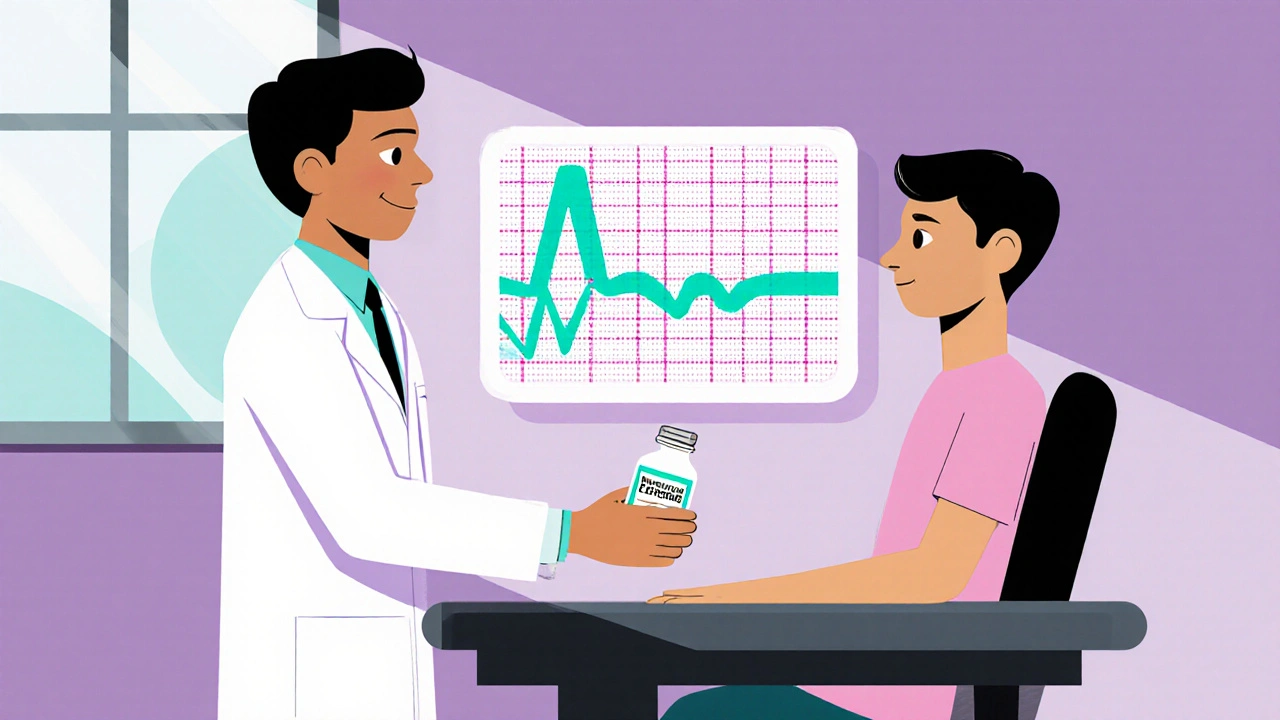Methadone and QT-Prolonging Drugs: How Combined Use Raises Arrhythmia Risk
Explore how methadone combined with QT‑prolonging drugs raises arrhythmia risk, with mechanisms, dosing tips, monitoring steps, and management strategies.
Continue ReadingWhen you take methadone, a long-acting opioid used for pain relief and opioid use disorder treatment. Also known as methadone hydrochloride, it helps manage withdrawal and cravings—but it can also quietly affect your heart’s electrical system. This isn’t theoretical. Studies show methadone can cause QT prolongation, a delay in the heart’s recovery phase after each beat, which increases the chance of dangerous irregular heartbeats like torsades de pointes. It’s not common, but when it happens, it can be life-threatening.
Who’s most at risk? People taking high doses—especially over 100 mg per day—those with existing heart conditions, low potassium or magnesium levels, or those using other drugs that also slow heart rhythm. Mixing methadone with certain antidepressants, antibiotics, or antifungals can push your heart into dangerous territory. Even people who’ve been on methadone for years without issues can suddenly develop this risk if their dose changes or they get sick. Your heart doesn’t always give warning signs, which is why regular EKGs are recommended for long-term users.
It’s not about stopping methadone unless your doctor says so. For many, it’s the only thing keeping them stable. But ignoring the cardiac risk is like driving with a check-engine light on—you keep going, hoping it’ll go away. The fix isn’t always changing medication. It’s monitoring: blood tests for electrolytes, simple EKGs every 6–12 months, and telling your doctor about every other drug you take—even over-the-counter ones. Many people don’t realize that common cold medicines or acid reducers can interact with methadone and raise the risk even higher.
What you’ll find below are real, practical posts that dig into how methadone interacts with other drugs, what heart monitoring actually looks like, and how people manage their treatment without putting their heart at risk. These aren’t generic warnings. They’re clear, evidence-based guides from people who’ve been there—whether they’re managing chronic pain, recovering from addiction, or supporting someone who is. You’ll learn what to ask your doctor, what tests matter, and what red flags to watch for before it’s too late.

Explore how methadone combined with QT‑prolonging drugs raises arrhythmia risk, with mechanisms, dosing tips, monitoring steps, and management strategies.
Continue Reading